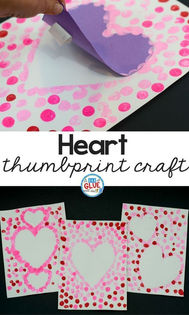Letter Ss, Friendship and Valentines
Essential Social Skills
We talk a lot about social and emotional development because they are in many ways, more important than academic. Research shows, and many kindergarten and elementary teachers will agree, that social skills help with the transition to school. Those who have strong social skills are more likely to be successful academically and later in life, have stronger friendships, and experience less stress and anxiety in social situations like daycare and school. Being better equipped to navigate social situations correlates to emotional and mental health as well. There are several types of social skills, according to Verywellfamily.com, all of which are useful in a kindergarten setting and beyond: sharing, cooperating, listening, following directions, respecting personal space, making eye contact, and using manners.
These skills do not always come naturally to kids, though. They take practice. Playing games, especially those that require teamwork can help children learn to get along better with others, make and keep friends, share, follow directions, use their matters and their listening ears.
In today's society, respecting personal space is more than just polite; it's a health measure. You can help your child practice this by having her spread out her arms or "airplane wings" and make sure her arms/fingers are unable to touch other people near her. You may already be practicing respecting personal boundaries by teaching your child to "knock on a closed door," or "keep hands to yourself." You can reinforce the idea that people may feel uncomfortable when somebody is too close to them (ie: close talkers), or role play scenarios.

Mistakes are natural. It's okay to gently remind your child when you notice he's not doing well in these areas. For example, if you are talking with your child and notice she isn't making eye contact with you, you may need to say, "Where do your eyes go when talking to somebody?" Positive reinforcement, praising your child for following directions or using good manners, goes a long way. If you are concerned about your child's social and emotional development, and think he may be struggling more than he should, you should contact your pediatrician. She can help you determine if your concerns are part of a larger issue or just a normal part of development.
Zoo Phonic Friend: Sammy Snake, Ss
Sammy Snake says "Ssss, sssss, ssss, S." When we practice making Sammy's sound, we move our hand to resemble a slithering snake. This is probably one of the Zoo Phonic letter that most closely resembles it's animal friend. To learn more about snakes, there's a video below, or you may want to visit Bridges Pet Store in town to study them in person since you aren't likely to find them outside here this time of year.
How We Form the Letter Ss
Lowercase s can be tricky at first—it is “a little curve this way, a little curve that way.” Uppercase S is similar but larger, feeling like a gentle wave.
Practicing S with ribbon wands, finger painting, or tracing in snow (real or pretend) helps children master these curves with confidence.
Friendship and Valentines
At this age, Valentines Day isn't about declaring romantic love, but about showing your friends and family that you like and love them. There are a number of wonderful books about friendship out there, including Fox Makes Friends, and Stick and Stone. Read alouds of both are included below to help explain what friendship is, and how you make friends. Even though we are more physically distant from others, learning how to make and keep friends are important skills and the suggestions for teaching social skills above can be helpful.

If you're looking for Valentines Day crafts, there are a few in the gallery below. When teaching children how to cut-out symmetrical hearts, we often use the following technique:
-
Fold a piece of paper in half.
-
Staple or tape the open side closed (so your child can't unfold it).
-
On the folded edge, draw half of a heart.
-
Cut on the drawn line.
There are a number of heart-themed activities below, including Q-Tip painting, Sharpie "water color painting" on coffee filters, and heart collages. Sometimes, though, just having your child draw a picture, or helping them write a note to a friend or family member can be more meaningful and just a fun for your child.









